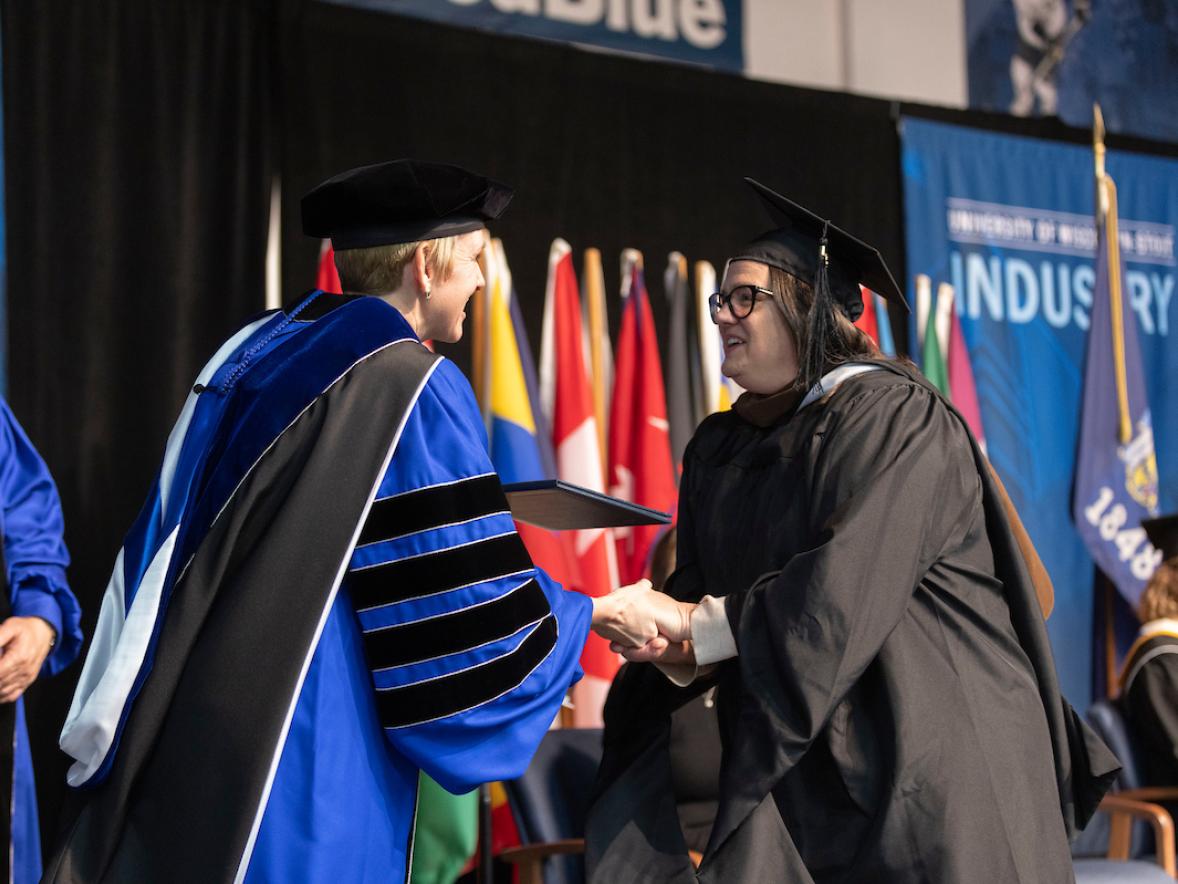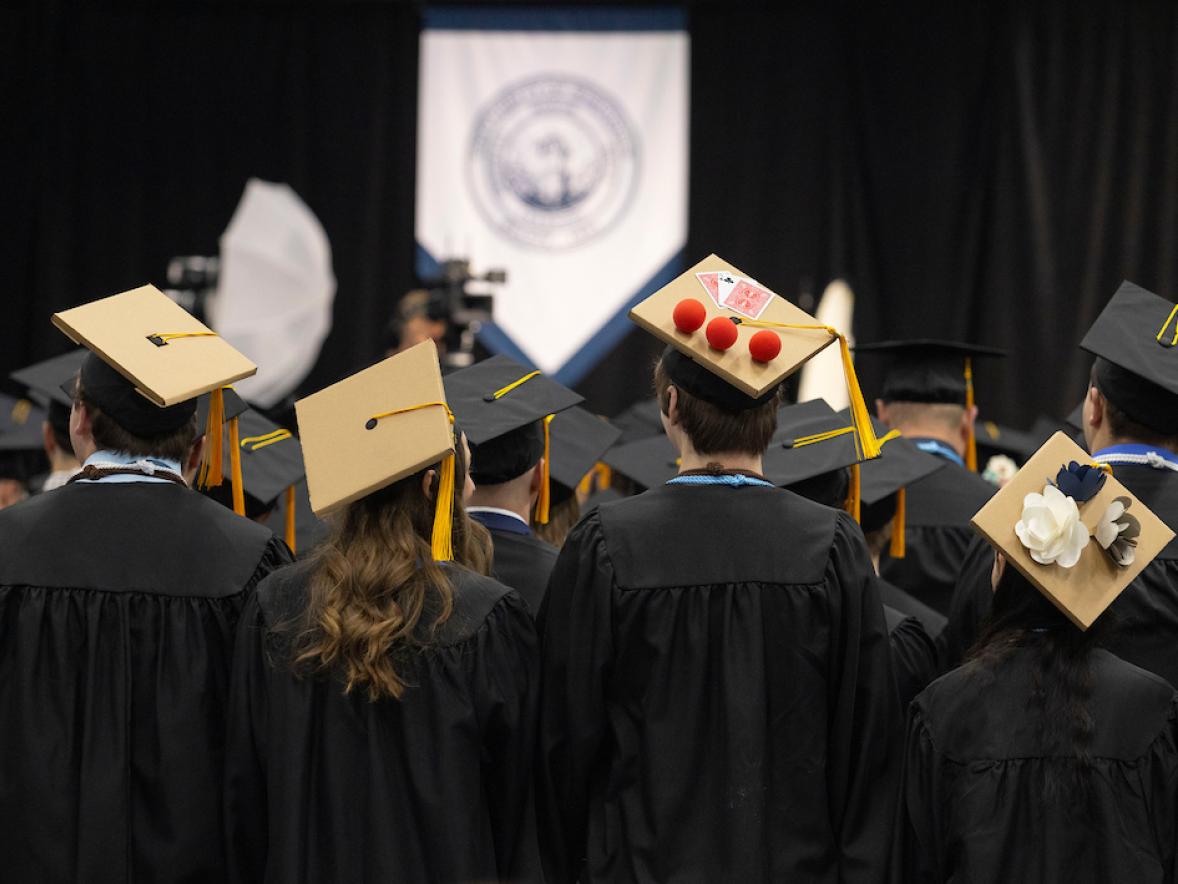A major, worldwide grant has been awarded to a UW-Stout professor to help continue his exploration of light and how it interacts with the everyday objects of our world.
Charles Matson Lume, who teaches in UW-Stout’s School of Art and Design, has received a $25,000 award from the Adolph and Esther Gottlieb Foundation of New York. He was one of 20 artists from around the world out of 705 who applied to receive the Individual Support Grant.
“I am surprised, delighted and grateful,” Lume said. “Competition for funding for the arts is fierce and the pie is small. Therefore, it makes winning this award a little sweeter.”
To qualify for the award, applicants needed 20 years of experience and had to submit images documenting their work over the course of their careers.
Lume has worked directly with light as a material for 24 years and indirectly for 30 years. A visual artist, his work highlights the interplay and intersections of light and matter, allowing the matter — or objects that we encounter daily — to speak in a sense.
“Like (Italian painter and printmaker) Giorgio Morandi, I noticed the objects I painted could speak. Their ‘thingliness’ and sense of light liberated something ineffable and true. Over time, I realized each thing had its own image — its shadow. I didn’t need to paint the thing; it had its own painting it carried around with it,” Lume said.
In 2008 he began to place objects on the floor and “had their image arise via light’s reflection or refraction. I continue to believe restraint and patience provide powerful guidance. Throughout all of this, my art has been shaped by poetry, beauty and a commitment to making ephemeral light installations.”
Lume, of St. Paul, is indirectly following a path forged in the 1960s by California artists like Robert Irwin and James Turrell, who worked with light.
However, he has branched off to consider “material culture and how light interacts with it. Quotidian material is always around us and we are mostly unconscious of it. Often, we just throw it away. I'm curious what it might say provided the right lighting conditions.”
Lume often dedicates his work to a poem or a poet who has inspired him, but his goal is not to illustrate a written work or capture something he’s seen or experienced.
“Both of those paths seem uninteresting to me. Many times, I am discovering what light can do via materials' interaction with it. Light is quick silver. It is so slippery and nearly unmanageable. Light is also ephemeral, like us. Both are immortal for a limited time. This ancient truth lives in my art.”
The properties of light can help us see “how we fit into contexts, histories, ways of being. In a hurried and harried capitalistic world, perhaps one of the most radical acts is sensing,” Lume said.
His installations have been featured recently at the Minnesota Museum of American Art in Minneapolis; St. Catherine University in St. Paul; and at the Hearst Center for the Arts in Cedar Falls, Iowa.
During his career, his work has been exhibited at museums and galleries in Ireland, Norway, Finland and New York City, among other places. He has had fellowships from the Bush and Jerome foundations and the Minnesota State Arts Board and participated in artist residencies in five northern European countries and the U.S.
Lume has Master of Arts and Master of Fine Arts degrees in painting and drawing from UW-Madison.
The Gottlieb Foundation was founded after the 1974 death of Adolph Gottlieb, who began his career as an artist in New York in the 1920s and helped start the abstract expressionism movement.
The faculty at UW-Stout’s School of Art and Design, the largest in Wisconsin, helps students build theoretical and practical foundations in an applied learning environment and encourages personal development in six Bachelor of Fine Arts programs, two Bachelor of Science programs and a Master of Fine Arts in design.
###







